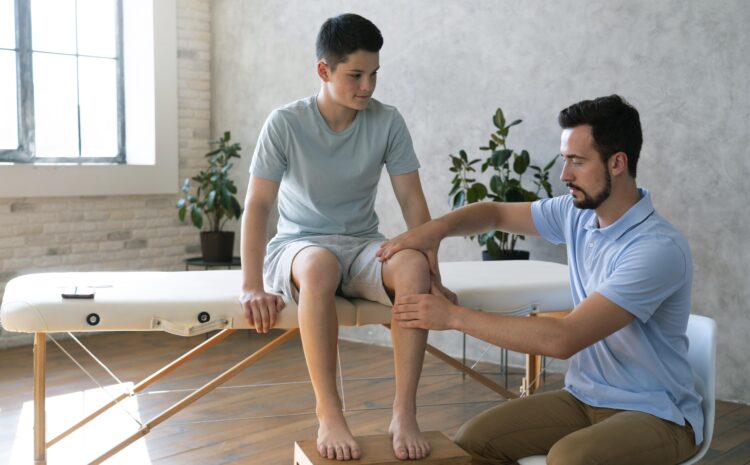
Orthopedic surgery is often necessary to address severe joint issues, fractures, and other musculoskeletal problems. The recovery period following such procedures is crucial for regaining mobility and achieving the best possible outcomes. Whether you’ve undergone traditional or advanced surgical techniques like robotic knee replacement surgery in Mumbai or Thane, adhering to a structured recovery plan is essential. Here are some comprehensive recovery tips to help you navigate this critical phase.
Understanding Orthopedic Surgery
Orthopedic surgery encompasses a wide range of procedures designed to treat conditions affecting the bones, joints, ligaments, tendons, and muscles. Common surgeries include joint replacements (such as hip or knee), spinal surgeries, and repairs of fractured bones or torn ligaments. With advancements in medical technology, procedures like robotic knee replacement surgery in Mumbai and Thane have become increasingly popular due to their precision and reduced recovery times.
Immediate Post-Surgery Care
1. Follow Medical Instructions Diligently
- Medication: Take prescribed medications on time, including pain relievers and antibiotics, to manage pain and prevent infections.
- Wound Care: Ensure that the surgical site is clean and dry. In order for your body to heal, make sure you receive enough sleep. Steer clear of demanding activities and allow your body the time it requires to heal. Follow your surgeon’s instructions on how to change dressings and care for the wound.
2. Rest and Elevation
- Rest: Make sure you get enough sleep so your body can recover. Steer clear of demanding activities and allow your body the time it requires to heal.
- Elevation: Elevate the affected limb to reduce swelling and improve blood circulation.
3. Ice Therapy
- Ice Packs: Apply ice packs to the surgical area to reduce swelling and numb the pain. Use ice for 20 minutes every 2-3 hours during the initial days post-surgery.
Physical Rehabilitation
1. Physiotherapy
- Professional Guidance: Engage in physiotherapy sessions as recommended by your surgeon. A physiotherapist will guide you through exercises designed to restore strength, flexibility, and range of motion.
- Consistency: Attend all scheduled physiotherapy sessions and perform prescribed exercises consistently at home for optimal recovery.
2. Gradual Mobilization
- Early Movement: Begin with gentle movements and weight-bearing activities as advised by your healthcare provider. Early mobilization can prevent stiffness and improve circulation.
- Assistive Devices: Use crutches, walkers, or other assistive devices if recommended to avoid putting undue stress on the healing joint.
3. Strength and Flexibility Exercises
- Strength Training: Focus on exercises that strengthen the muscles surrounding the surgical site. This support is crucial for joint stability and function.
- Flexibility Exercises: Incorporate stretching exercises to maintain flexibility and prevent stiffness.
Lifestyle Adjustments
1. Balanced Diet
- Nutrient-Rich Foods: Consume a balanced diet rich in vitamins, minerals, and proteins to support the healing process. Include foods like leafy greens, lean proteins, dairy products, and whole grains.
- Hydration: To stay hydrated, sip lots of water throughout the day. Proper hydration aids in the healing process and prevents complications.
2. Weight Management
- Healthy Weight: Keep your weight within a healthy range to ease joint strain. Excess weight can hinder recovery and increase the risk of complications.
- Dietary Adjustments: Make dietary adjustments if necessary, focusing on portion control and avoiding high-calorie, low-nutrient foods.
3. Sleep and Stress Management
- Adequate Sleep: Ensure you get enough sleep to allow your body to repair and regenerate tissues.
- Stress Reduction: Practice relaxation techniques such as deep breathing, meditation, or gentle yoga to manage stress and promote overall well-being.
Monitoring and Follow-Up
1. Regular Check-Ups
- Follow-Up Appointments: Keep all of your planned follow-up meetings with your surgeon so that you can discuss any concerns and get an update on your condition.
- Progress Evaluation: Your surgeon will evaluate your recovery, adjust medications if needed, and provide guidance on further rehabilitation steps.
2. Watch for Complications
- Signs of Infection: Be vigilant for signs of infection such as increased redness, swelling, warmth, or discharge at the surgical site. In case you experience any of these symptoms, get in touch with your physician right away.
- Blood Clots: Be aware of symptoms like unexplained swelling, pain, or redness in your limbs, which could indicate a blood clot. Seek medical attention promptly if you suspect a clot.
Robotic Knee Replacement Surgery: Specific Considerations
1. Advantages of Robotic Surgery
- Precision: Robotic knee replacement surgery in Thane and Mumbai offers high precision, leading to better alignment and potentially faster recovery.
- Minimized Trauma: This advanced technique minimizes trauma to surrounding tissues, reducing post-operative pain and swelling.
2. Post-Operative Care
- Specific Protocols: Follow any specific post-operative care protocols provided by your surgeon for robotic-assisted procedures.
- Enhanced Recovery: Robotic surgery may allow for a quicker return to normal activities, but it’s essential to adhere to your personalized recovery plan.
Conclusion
Recovery after orthopedic surgery requires a combination of diligent medical care, physical rehabilitation, and lifestyle adjustments. Whether you’ve had traditional surgery or advanced robotic knee replacement surgery in Mumbai or Thane, following these comprehensive tips can significantly enhance your recovery journey. Always consult your healthcare provider for personalized advice and support throughout the recovery process.

